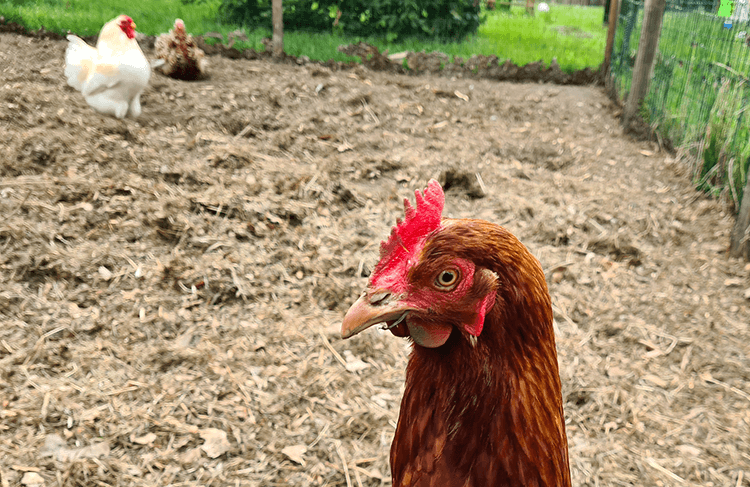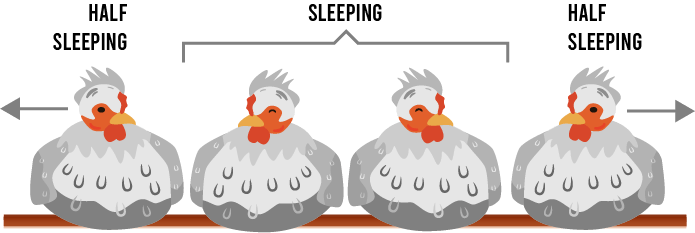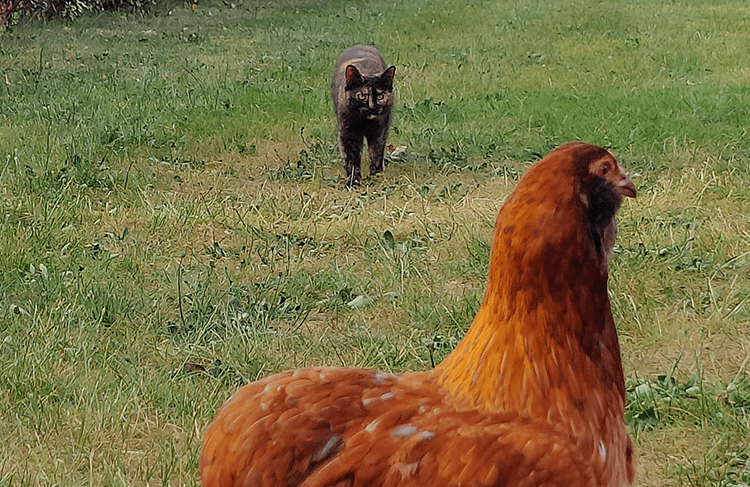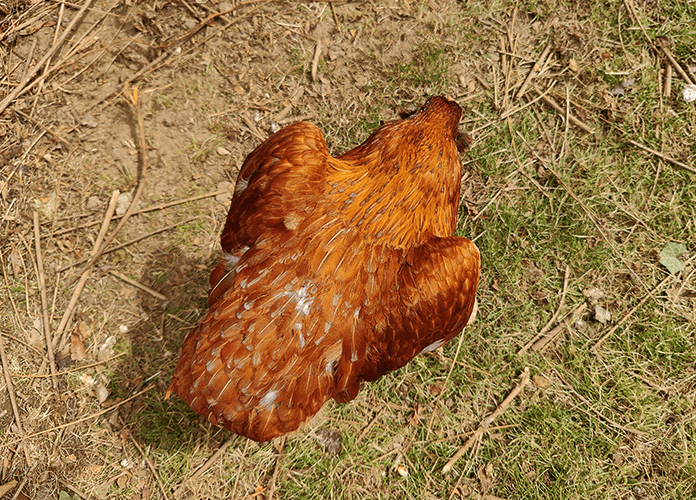5 Reasons Why Your Chicken Is Scared

Kids call each other ‘chicken’ when one of them is scared or frightened easily, and it’s not that far-fetched. Chickens scare easily. As prey animals, they have their guard up at all times and are on the lookout for dangers or predators. Let’s address the five most common reasons why your chicken is scared. And let’s find out why your chicken is afraid of you.
- It’s in their nature
- Predator around
- Loud noises
- Sudden movements
- New situation
It’s in their nature
Chickens are known to be jumpy animals that scare easily. But why is that? It’s simple. It’s in their nature. Chickens are prey animals; they aren’t fast, nor can they fly away, so they keep their guard up and run or hide immediately when they feel threatened. Sudden sounds or movements can warn them to be extra careful, and because they belong to a flock, there’s always one chicken on the lookout. Other flock members are alerted to be more cautious by making warning sounds.
Did you know that the chicken on the lookout sleeps with one eye open? Literally. Chickens roost close to each other to stay warm and be safer from predators. The chickens that are on the outside of the roosting perch keep one eye open to protect the flock. They have the unique ability to sleep with half their brain, so the other part stays alert. This is called unihemispheric sleep.

Predator Around
There are many predators out there that love the taste of chickens. As spring arrives, many animals wander around, hungry and looking for food. You can do your best to predator-proof the chicken run and coop, but it’s also in the chickens’ nature to watch out constantly for any danger.
If your flock gets attacked by a predator, chances are relatively high that not all of them will survive. The attack leaves the rest of the flock stressed and scared for some time. Chickens are intelligent animals; they’ll remember what has happened and be even more alert than they used to be.
If you hear your chickens making loud noises, go and check it out immediately; chances are, they are frightened by something. This could be innocent, like the neighbors’ cat, but it can also mean they’re under attack.

Loud noises
One of the main reasons why chickens are stressed is because of loud noises near the coop. Whether you’re mowing the lawn or having friends over and playing loud music, it can cause stress and anxiety to the flock.
However, when the noises are occasional and during the daytime, they won’t bother your chickens that much; they’ll be overly stressed. However, studies have shown that chickens living close to loud environments like airports or railroad tracks are more likely to decrease their egg production and have lower blood pressure.
Sudden movements
The natural skittishness of chickens makes them almost jump out of their feathers when unexpected movements happen near the coop. This does not have to be anything significant. There could be something moving in the backyard caused by a sudden breeze, or you lifting your hand or arm when inside the coop to feed them. This doesn’t mean you must be extra careful when entering the run. Just be aware chickens don’t like sudden movements and don’t like being chased.
New Situations
Chickens are creatures of habit, they don’t like new things. Many chicken owners tell stories about their chickens refusing to eat for a couple of days after rehoming them in a new coop. New environments and surroundings make them stressed and anxious.
Limit these events as much as you can. When introducing new chickens, do it all at once. Don’t chance their run or coop too much.
Why is my chicken scared of me?
This is the million-dollar question many chicken keepers ask themselves. You feed your chickens, spoil them with treats and table scraps, clean the coop, and take good care of them. Why would they fear you when it’s obvious you would never harm them?
There is a straightforward explanation as to why chickens are scared of their owners. As a human, you are much bigger and very intimidating to them. This makes them keep their guard up when you’re approaching them. It is possible, however, to make them trust you. But if you want to make them into pet chickens, be aware that not all chickens like to be held and petted.
How can I make my chicken trust me?
By following some small steps, you can fasten the process to make your chickens trust you and don’t run away each time you come closer. As said before, chickens don’t like loud noises or sudden movements, so limit these actions as much as possible while near the coop. Never chase or hurt your chickens in any way; they’ll remember! If you need to catch and hold your chicken to examine her, always do so calmly and relaxedly.
Speed up the process by feeding them tasty treats like mealworms. But don’t exaggerate. A chicken’s diet should never exist of more than 10% of their daily feed in snacks. While feeding them, sit with your chickens; if you feel comfortable doing it, talk to them in a soothing voice. They’ll remember your voice and face.
What (not) to do to make your chicken trust you:
- No sudden movements
- No loud noises
- Don’t chase your chickens
- Provide tasty snacks
- Sit with your chickens
- Talk to them
This isn’t a guarantee your chickens can be held easily and petted. Some chickens or breeds don’t like to be ‘pampered’, which is ok. Don’t push them into things they obviously don’t like. If your chickens want attention from you, you’ll know.
Why is my chicken crouching?
Young hens, known as pullets, sometimes crouch or squat down before you. It looks like they are scared of you but are too afraid to run away, but it actually means they are almost ready to lay eggs and have reached sexual adulthood. Hens only crouch to people they know. If they are terrified, they’ll run away and hide but never squat.
A crouching hen flattens her back and spreads her wings, telling you she’s ready to mate. It’s a sign of submission, not of fear.

Let’s sum up
Chickens are prey animals, making them skittish and always looking for dangers. It’s in their nature. But predator attacks are pretty common in chicken coops, so try and protect your flock as much as possible by predator-proofing their living environment. Don’t make sudden movements or loud noises near the coop. It’ll frighten them. If you want to gain the trust of your chickens, use treats to make them like you. Sit with them and talk to them. Don’t expect miracles; some chickens don’t like the extra attention or don’t like being held or petted.






















